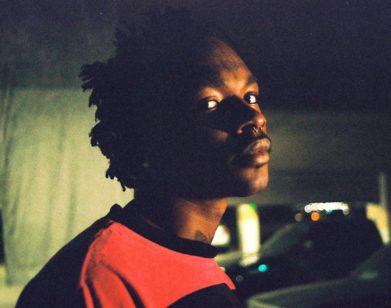What ‘Black Panther’ Tells Us About Human Behavior

The therapist and the film critic occupy a similar space in the culture. The latter cracks open the fundamental truths of our popular cinema; the former, of ourselves. For our series On the Couch, we ask New York therapists to pick the brains of the characters within their favorite films.
2019 may be the year of the pig, but 2018 was the year of the Panther. Black Panther, Ryan Coogler’s superhero film of epic proportion, broke several records, becoming not only the nation’s highest-grossing film of the year, but also the highest-grossing film of all time by a black director, and the biggest comic book superhero film ever released in the US. At the end of this month, the film will go head-to-head at the Oscars with critically-acclaimed dramas like Roma and A Star Is Born as the first superhero movie to be nominated for Best Picture — making it the perfect time to revisit all the reasons the film has become such a hit. We asked a clinical psychologist, Dr. Gregory Petronzi, to discuss how the Afro-futurist superhero saga reveals fundamental truths about human behavior.
———
Black Panther is the first superhero film to be nominated for Best Picture at the Oscars. It also smashed the box office, becoming the ninth highest-grossing film of all time with over $1.35 billion worldwide. But while many have spilled ink over what makes the film so successful, what stood out to me about the film as a psychologist was the way that the plot speaks to the undying debate of “nature versus nurture.”
The question of nature versus nurture predates psychology as a field. In essence, the debate focuses on explaining how we are who we are: is our behavior and personality the result of our genetic makeup, or the environment in which we are raised? This lays the groundwork for psychology as a discipline, which is ultimately about how we understand people. Years ago, schizophrenia was thought to be the result of bad parenting. We know today, however, that this disorder has a biological origin. And yet, while certain aspects of our personalities can be moderated by biological variables, research today increasingly shows the prevalence of environmental influences on our dispositional characteristics.
The duality of the nature/nurture debate is epitomized through the two main characters of Black Panther. As cousins, the protagonist T’Challa (Chadwick Boseman) and our supervillain Erik Killmonger (Michael B. Jordan), grew up to have radically different lives. While they are roughly the same age, Killmonger was raised on the streets of Oakland, surrounded by poverty and racial injustice, while T’Challa was born into wealth, amidst sophisticated technology, power, and opportunity. Though both men are quite different, they are each successful in their respective roles. Killmonger, driven by anger and vengeance, becomes a decorated Marine that gains purpose by waging war against those responsible for the oppression he witnessed growing up. T’Challa, more reserved and conscientious, tries to find his sense of self as king of Wakanda by striving to balance his moral compass and the script of tradition. Early in the film, we see T’Challa questioning the isolationist path that Wakanda traditionally has followed, but upon his ascension to the throne, T’Challa ultimately puts his qualms aside and decides to follow tradition regarding Wakandan foreign policy.
While watching the film, I found myself hoping to see Killmonger and T’Challa bridge their two perspectives. But ultimately, despite sharing an intimate moment staring into the Wakandan sunset together after a lengthy fight scene, the chasm between their two worldviews — a result of their widely different environmental upbringings — is too great for them to compromise.
It’s a powerful statement on the impact of “nurture” and the fundamental attribution error — that is, the tendency we all have as humans to underestimate the impact of context in understanding another’s experience or point of view. Ultimately, a goal in therapy, especially with couples and families, is to help people better understand others’ perspectives and build trust in a healthy relational paradigm. Black Panther highlights the importance of environmental impacts on personality, prompting us to more carefully examine a person’s experience before judging their actions.
Gregory Petronzi, Ph.D. is a licensed psychologist who works with individuals and couples at his private practice in Chelsea. He teaches courses in psychology at CUNY, as well as the practice of therapy to graduate students at NYU. His published research examines the role personality plays in therapeutic preferences.






